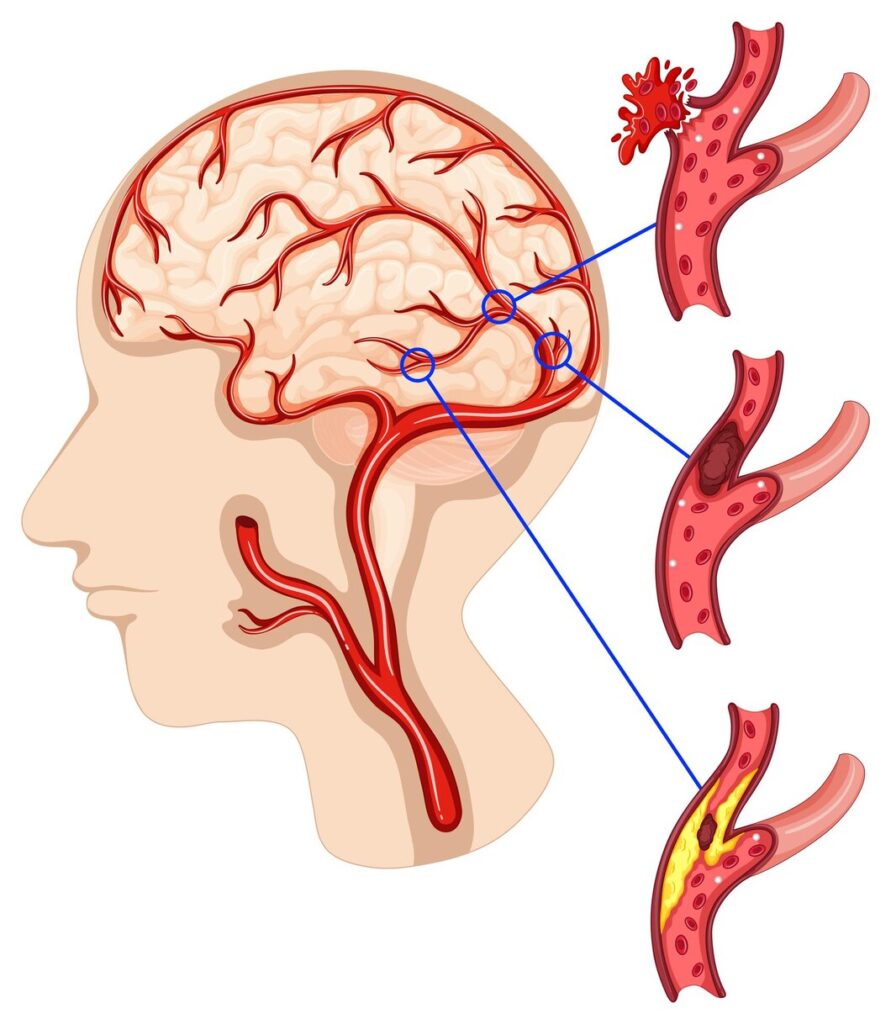
Streptokinase Introduction :
Streptokinase is a potent thrombolytic agent widely utilized in medical practice for its ability to dissolve blood clots. Understanding its indications, contraindications, mechanism of action, side effects, and potential complications is crucial for clinicians navigating its therapeutic landscape.
Indications Of Streptokinase:
Streptokinase finds application in various clinical scenarios, predominantly in acute myocardial infarction, ischemic strokes, and deep vein thrombosis. Its efficacy stems from its fibrinolytic properties, which aid in the dissolution of fibrin-rich blood clots.
- Acute Myocardial Infarction (AMI):
- Mechanism: Dissolves blood clots, promoting reperfusion in coronary arteries.
- Duration: Administered within hours of symptom onset for optimal efficacy.
- Pulmonary Embolism:
- Mechanism: Facilitates clot breakdown in pulmonary vessels.
- Duration: Treatment duration varies, guided by the severity of the condition.
- Arterial Thrombosis:
- Mechanism: Acts as a fibrinolytic agent, targeting arterial clots.
- Duration: Individualized based on the specific clinical scenario.
Contraindications:
While streptokinase has proven benefits, caution is warranted in certain situations. Contraindications include active bleeding disorders, recent surgery, or trauma, as the risk of hemorrhage may outweigh potential benefits. Allergic reactions to streptokinase or a history of prior exposure may also preclude its use.
Thrombolysis Contraindications
- Active Bleeding:
- Thrombolysis is contraindicated in the presence of active bleeding or a history of hemorrhagic stroke.
- Recent Surgery or Trauma:
- Within the last two weeks, especially if involving the central nervous system or major surgery.
- Severe Hypertension:
- Uncontrolled high blood pressure may increase the risk of bleeding complications.
- Known Bleeding Disorders:
- Conditions like hemophilia or other coagulopathies may pose a contraindication.
- Ischemic Stroke Within 3 Months:
- Recent ischemic strokes increase the risk of bleeding complications.
- Aortic Dissection:
- Thrombolysis is generally avoided in acute aortic dissection due to the risk of exacerbating bleeding.
- Active Peptic Ulcer Disease:
- Due to the potential for increased gastrointestinal bleeding.
- Pregnancy:
- Thrombolytic therapy is usually avoided during pregnancy due to potential fetal risks.
Mechanism of Action:
Streptokinase operates through a complex enzymatic cascade. Upon administration, it activates plasminogen, converting it into plasmin. Plasmin, in turn, degrades fibrin clots into soluble fragments, promoting thrombolysis. This fibrinolytic activity underlies streptokinase’s effectiveness in dissolving blood clots.
Mechanism of Streptokinase
- Fibrinolysis Activation:
- Streptokinase initiates the fibrinolytic pathway by forming a complex with plasminogen, converting it into plasmin.
- Plasmin Formation:
- Plasmin is an enzyme responsible for breaking down fibrin, the main component of blood clots.
- Fibrin Degradation:
- Plasmin cleaves fibrin into soluble fragments, dissolving the clot and restoring blood flow.
- Amplification of Fibrinolysis:
- Streptokinase’s activation of plasminogen triggers a cascade, leading to the activation of additional plasminogen molecules, enhancing fibrinolysis.
- Systemic Effects:
- Streptokinase can have systemic effects, potentially leading to bleeding complications.
Side Effects Of Streptokinase:
Adverse reactions to streptokinase can manifest in various organ systems. Common side effects include bleeding, which can range from minor to severe. Allergic reactions may occur, necessitating close monitoring during administration. Additionally, fever, nausea, and hypotension have been reported.
Side Effects:
- Bleeding:
- Increased risk of bleeding is a primary concern, including internal bleeding and hemorrhage.
- Allergic Reactions:
- Hypersensitivity reactions can occur, ranging from mild rash to severe anaphylaxis.
- Fever and Chills:
- Flu-like symptoms, including fever and chills, may occur during or after administration.
- Hypotension:
- Rapid blood clot dissolution may lead to low blood pressure, requiring monitoring.
- Nausea and Vomiting:
- Gastrointestinal symptoms, such as nausea and vomiting, can occur.
- Arrhythmias:
- Cardiac arrhythmias may develop, necessitating close cardiac monitoring.
- Hypersensitivity Pneumonitis:
- Rarely, streptokinase may cause lung inflammation with symptoms like cough and shortness of breath.
- Headache and Dizziness:
- Central nervous system effects such as headache and dizziness may occur.
- Hematologic Effects:
- Alterations in blood counts, including thrombocytopenia, may be observed.
- Injection Site Reactions:
- Pain or irritation at the injection site can occur.
Complications:
Complications associated with streptokinase therapy are diverse. Hemorrhagic complications, though infrequent, demand meticulous attention. Reperfusion injury, allergic responses, and hypotension are potential challenges. Clinicians must weigh the benefits against these risks, tailoring treatment to individual patient profiles.


Great article sir
Really nice
Pingback: Myocardial Infarction - Types, ECG Changes And Culprit Vessels - Modern Health